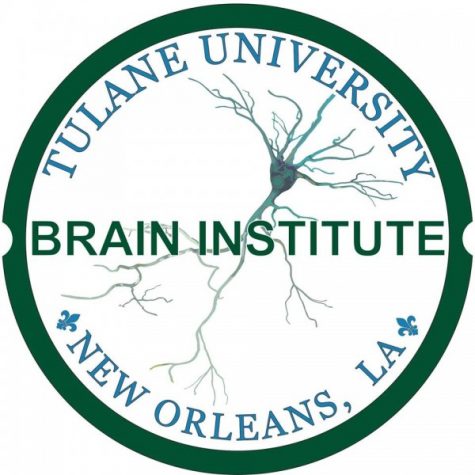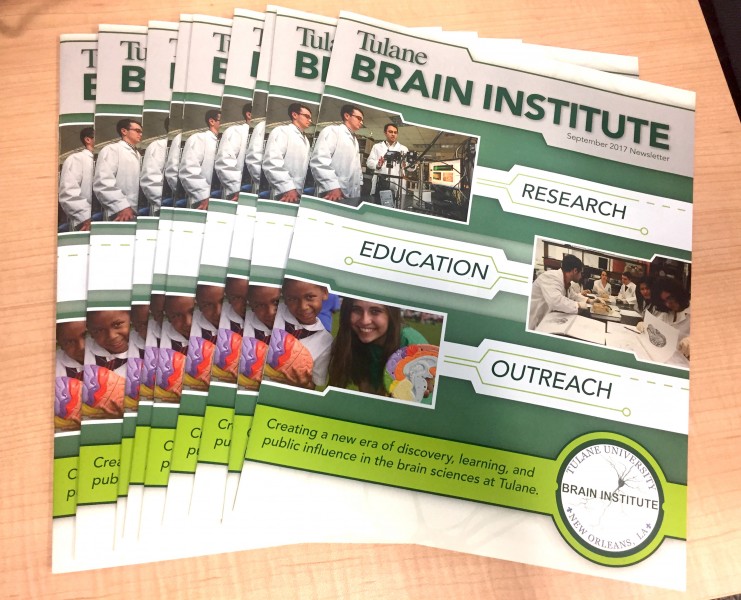Brain Institute makes headway in neuroscience research
Josh Axelrod | Senior Staff Photographer
The Brain Institute opened in 2016 and is focused on research, education and community outreach.
First proposed by a group of Neuroscience Program faculty members in 2014, the Brain Institute was conceived for the purpose of coordinating and advancing neuroscience research across Tulane’s campuses.
Since it was first established on Oct. 7, 2016, the Brain Institute has continued to incorporate the highly valued principles of research, education and community outreach. According to Dr. Jill Daniel, director of the Tulane Brain Institute, these intrinsic principles represent the three pillars of the Institute.
Though neuroscience is a highly interdisciplinary field of study within the School of Science and Engineering and many different research groups are associated with the Brain Institute, most of the research currently being conducted focuses on four main themes: memory and cognition; neural disease, injury and repair; brain-body health; and hormone-brain interaction.

The Tulane Brain Institute focuses on research, education and engagement in the neuroscience community.
Each research group is led by a faculty member and employs postdoctoral researchers as well as research-seeking students from all academic levels. In addition to a variety of research opportunities, the Brain Institute seeks to engage interested students by other means as well.
“The Brain Institute has a weekly seminar with speakers who talk about a range of topics of interest to students and faculty from the Uptown and Downtown campuses,” Dr. Beth Wee, director of the masters and undergraduate neuroscience programs, said. “Our summer research program for undergraduates brings together students working in laboratories across many departments.”
Neuroscience has been a prominent area of research at Tulane since 1986, when the University established the PhD program in Neuroscience as the school’s first interdisciplinary doctoral program. Since then, the Tulane University Neuroscience Program has come a long way in terms of education.
When the undergraduate program in neuroscience was introduced in 2000, it quickly grew to become one of the most popular majors offered at Tulane, indicating the rapidly growing interest in the field. In fact, the neuroscience major has already led many students to pursuing careers in medicine or brain research.
According to the program’s website, “Over 400 students already have graduated with [a degree] in Neuroscience,” while it is estimated that “over 150 students annually are pursuing the degree.”
Dr. Wee believes the Brain Institute will further encourage students to pursue careers in neuroscience.
“The neuroscience major at Tulane lets students prepare for medical or graduate school, other careers in the health sciences, and has applications in biotechnology, computer science, philosophy, etc.,” Wee said.
Community engagement is yet another fundamental aspect of the Brain Institute. Faculty and students associated with the Institute participate in outreach programs such as K-12 STEM educational programs, like the Tulane Science Scholars, Boys At Tulane in STEM and Girls In STEM at Tulane. The Brain Institute also supports the Tulane Stroke Survivors Support Group and provides resources to stroke survivors and their families.
The #Tulane Brain Institute is studying why males have more impulse-control issues than females, with the ultimate goal of developing more effective preventative and treatment strategies.
More info on the study: https://t.co/YHWohVuQkP pic.twitter.com/pU9NG9Sjxb
— Tulane Alumni (@tulanealumni) December 13, 2017
“The Tulane Brain Institute aims to be an integral part of the city and region by bringing neuroscience to New Orleans schools, promoting brain health in the community, and providing support to New Orleans families affected by brain injury and disease,” Daniel said.
Daniel also said that all students pursuing Neuroscience as their major automatically become members of the Brain Institute, though it is not exclusively restricted to neuroscience majors. The Tulane Brain Institute, whose administrative offices are located in Flower Hall, is open to all students.
One way to get involved is to attend the Brain Awareness Week, an event which takes place on Tulane’s campus every March. Students also have the opportunity to join the Tulane University Neuroscience Association, a student-run club that engages in social and scientific events at Tulane through the Brain Institute as well as throughout the New Orleans community.
Your donation will support the student journalists of Tulane University. Your contribution will allow us to purchase equipment and cover our annual website hosting costs.



